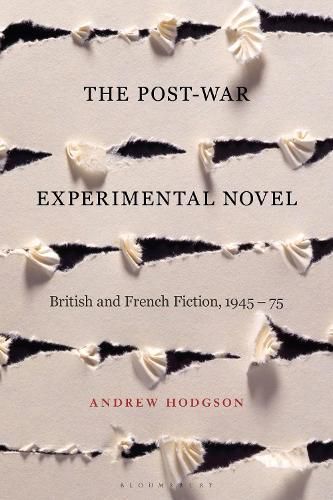Readings Newsletter
Become a Readings Member to make your shopping experience even easier.
Sign in or sign up for free!
You’re not far away from qualifying for FREE standard shipping within Australia
You’ve qualified for FREE standard shipping within Australia
The cart is loading…






Delving into how the traumatic experience of the Second World War formed - or perhaps malformed - the post-war experimental novel, this book explores how the symbolic violence of post-war normalization warped societies’ perception of reality. Andrew Hodgson explores how the novel was used by authors to attempt to communicate in such a climate, building a memorial space that has been omitted from literatures and societies of the post-war period. Hodgson investigates this space as it is portrayed in experimental modern British and French fiction, considering themes of amnesia, myopia, delusion and dementia. Such themes are constantly referred back to and posit in narrative a motive for the very broken forms these books often take - books in boxes; of spare pages to be shuffled at the reader’s will; with holes in pages; missing whole sections of the alphabet; or books written and then entirely scrubbed out in smudged black ink.
Covering the works of B. S. Johnson, Ann Quin, Georges Perec, Roland Topor, Raymond Queneau and others, Andrew Hodgson shows that there is method to the madness of experimental fiction and legitimizes the form as a prominent presence within a wider literary and historical movement in European and American avant-garde literatures.
$9.00 standard shipping within Australia
FREE standard shipping within Australia for orders over $100.00
Express & International shipping calculated at checkout
Delving into how the traumatic experience of the Second World War formed - or perhaps malformed - the post-war experimental novel, this book explores how the symbolic violence of post-war normalization warped societies’ perception of reality. Andrew Hodgson explores how the novel was used by authors to attempt to communicate in such a climate, building a memorial space that has been omitted from literatures and societies of the post-war period. Hodgson investigates this space as it is portrayed in experimental modern British and French fiction, considering themes of amnesia, myopia, delusion and dementia. Such themes are constantly referred back to and posit in narrative a motive for the very broken forms these books often take - books in boxes; of spare pages to be shuffled at the reader’s will; with holes in pages; missing whole sections of the alphabet; or books written and then entirely scrubbed out in smudged black ink.
Covering the works of B. S. Johnson, Ann Quin, Georges Perec, Roland Topor, Raymond Queneau and others, Andrew Hodgson shows that there is method to the madness of experimental fiction and legitimizes the form as a prominent presence within a wider literary and historical movement in European and American avant-garde literatures.